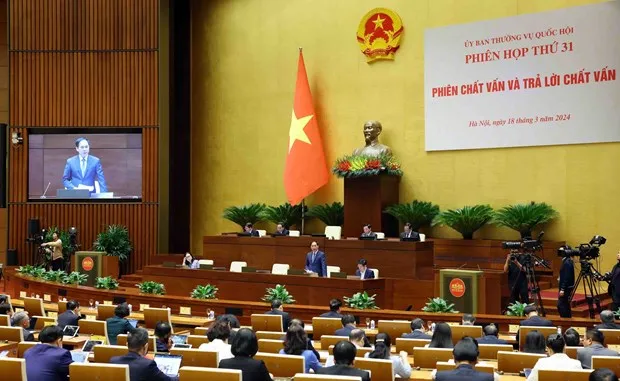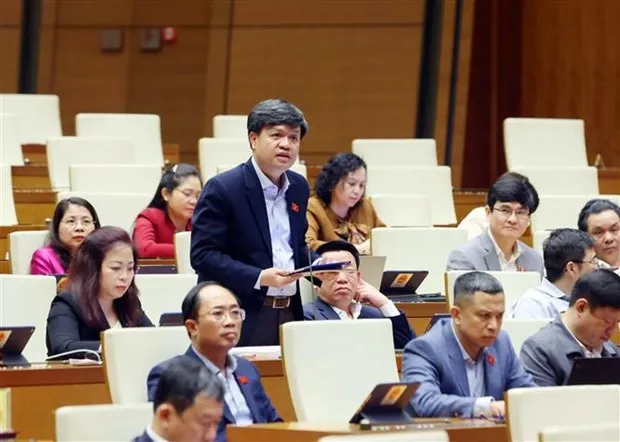
Vietnam’s elevation of relations with major and important partners reflects the strongly enhanced mutual understanding and political trust between the country and the partners, Minister of Foreign Affairs Bui Thanh Son told a question-and-answer session on March 18.
Replying to legislators’ questions at the event, part of the 31st meeting of the National Assembly Standing Committee, Son cited Party General Secretary Nguyen Phu Trong as saying at the 32nd Diplomatic Conference that the upgrade of Vietnam’s relations with important partners to comprehensive strategic partnerships was a highly important result that carries historic significance.
Among the 30 strategic partners and comprehensive partners, Vietnam now has comprehensive strategic partnerships with seven countries. It has established comprehensive strategic partnerships or strategic partnerships with the five permanent member states of the UN Security Council, he noted.
He highlighted the strongly enhanced mutual understanding and political trust as seen in the elevation of Vietnam’s ties with major and important partners.
Taking the US as an example, the minister said Vietnam normalised relations with this country in 1995, and bilateral ties were upgraded to a comprehensive partnership in 2013 and a comprehensive strategic partnership in 2023. Mutual trust has also improved much while exchanges and cooperation have been unceasingly fostered.
On the basis of enhanced political trust, Vietnam’s cooperation with the partners has also seen progress in other fields such as labour, science - technology, education - training, and culture, according to Son.

Establishing and upgrading ties with partners, Vietnam has paid attention to reinforcing political trust and basing on each partner’s strengths to promote relations in trade, investment, science - technology, and education - training in a more intensive and comprehensive manner.
Vietnam has identified certain breakthroughs to be made in relations with partners, he said, elaborating that it targets breakthroughs in infrastructure connectivity with China, in the semiconductor industry with the US, in high-tech agriculture and education - training with Australia, and in official development assistance (ODA) with Japan.
At the Q&A session, Minister Son also fielded questions about the implementation of economic, trade, and investment cooperation agreements in border localities, the planning of border gates, and the optimisation of border localities’ advantages to boost socio-economic development.
He also gave further information about some focuses of economic diplomacy, the maintenance and development of traditional cultural values and the Vietnamese language in overseas Vietnamese communities, and the mobilisation of overseas Vietnamese intellectuals’ contributions to national development.




















